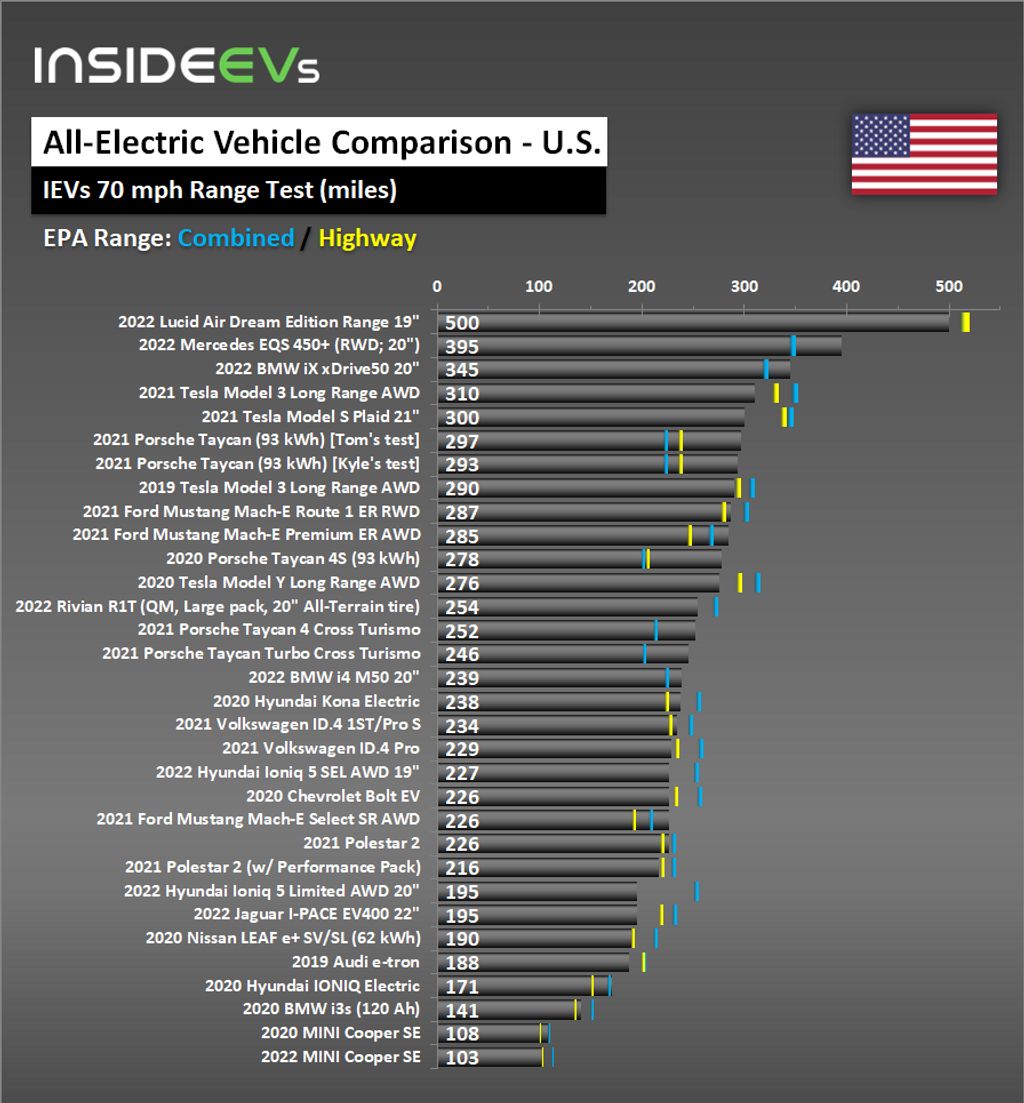danrjones
Well-known member

https://insideevs.com/reviews/443791/ev-range-test-results/


Pack swapping is a bad idea who's business case has already been proven as a failure.alozzy said:If EV manufacturers could standardize on a swappable EV pack design, that uses LFP cells like the BYD Blade battery system, then 60 kWh packs would work for most EVs.
.
.
.
Instead of building out electrical infrastructure to place high speed L3 chargers all over the place, standardized 60 kWh packs could be charged in major urban centers and then trucked out or transported by train to swapping shops located along major highway routes.
nlspace said:Impressive test data
Stanton said:Pack swapping is a bad idea who's business case has already been proven as a failure.
Can you imagine what would happen if we asked major car manufacturers to share/standardize ICE designs? Where's the competitive advantage?
Stanton said:Pack swapping is a bad idea who's business case has already been proven as a failure.
Can you imagine what would happen if we asked major car manufacturers to share/standardize ICE designs? Where's the competitive advantage?
danrjones said:In the end, I think we need to give consumers what they want, even if some find it slightly obtuse; otherwise, you won't see people converting to EVs.
SageBrush said:danrjones said:In the end, I think we need to give consumers what they want, even if some find it slightly obtuse; otherwise, you won't see people converting to EVs.
True for the pampered class. For the large migration it is all about cost.
Enter your email address to join: